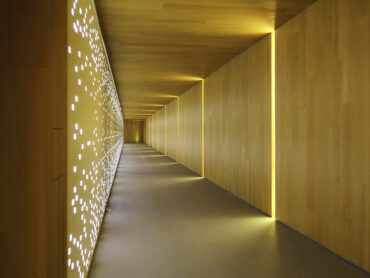A New Scam Every Minute
The success of electronic marketing naturally invites a criminal element. Our IT departments, whether in-house or outsourced, are the ever-vigilant experts on fraud detection, not out of want, but necessity. Yet somehow, all of this prevention often moves such less-than-honest individuals to even more creative endeavors. Here is one such tale that is not yet resolved.
One of our Agency’s clients is the prestigious Hazelton Hotel in Toronto. This exquisite, independent, 77-room property is uber-professional and impeccably run by a highly trained staff. The property’s website (www.thehazeltonhotel.com) is commensurate with the Hazelton’s cachet – understated with a focus on ultramodern quality.
Recently, the Hazelton Hotel received a social media inquiry from an individual who wanted to know about employment at the property’s ‘sister’ hotel in London, England. This note was immediately red-flagged. Sister property? We asked the Facebook respondent, who then forwarded a comment that claimed the supposed Hazelton Hotel in London as an offshoot of the genuine article.
Sure enough, a new web site was created at www.thehazeltonhotel.co.uk. A cursory visit to the site was interesting. It was a beautiful property, with magnificent guest rooms, dining, pool and scenic vistas. But something was wrong. Then, a double take: no hotel in London that we know of has a view of the Hong Kong waterfront, and no pool in London has palm trees and cabanas! Another oddity was that the site did not take online reservations. This is not unheard of, but rare in today’s electronic environment. Of note, nowhere in the site does it refer to or link to the Toronto property.
A bit more digging: A quick look at the WHOIS data showed that the site URL was registered only in late July 2012…in Nigeria – quite logical for a British hotel, no? The photos were all sourced from interior design magazines and, for the most part, not sized correctly. Further, the English copy reflects that of a second language user. The site has limited meta or keyword tags and is not wholly Google optimized. A Google Street View of the address given didn’t reveal any prominent hotel edifice either. And lastly, the telephone number on the site goes straight to an answering machine
But, don’t just take my word as bond; have some fun with it. Give them a call or drop them an email, and then see what happens when you prod for more details.
Okay, so why do the fraudsters go to all this trouble? What value would anyone have in replicating the name of a boutique independent property? All we can surmise is that the London site was designed to phish the identities of unsuspecting employment applicants and potentially guests who submit requests for guest rooms. Indeed, emailing this ‘property’ brought forth a hasty and affirmative reply; no doubt the lure for subsequent inquiries about more private information. Worse yet, imagine what these charlatans could do with a newsletter email list.
To me this raises ‘buyer beware’ to a whole new level. And, while this has happened to the Hazelton Hotel, our Agency’s programmers believe that a replica site built on a URL-variant like this case could be created for any hotel in the world in about 20-40 hours, perhaps less when using a pre-coded WordPress template. While we will take steps for the Hazelton Hotel to ensure its integrity, if you get some odd social media query of this nature, don’t be surprised. In any event, what would you do in this situation? You might also want to contact your lawyers to protect yourself against any impending malevolence.




